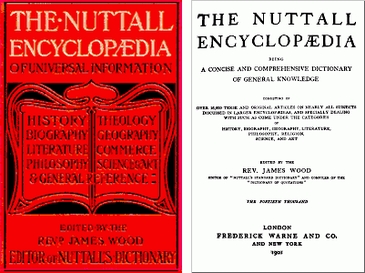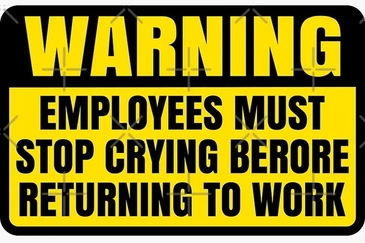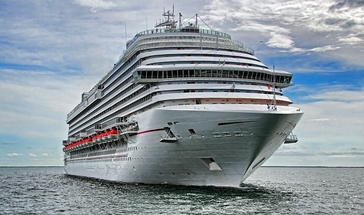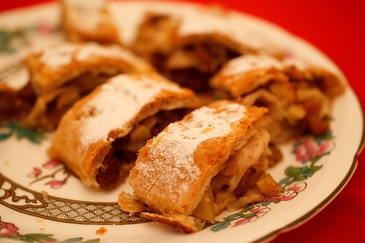The Checker Maven
The World's Most Widely Read Checkers and Draughts Publication
Bob Newell, Editor-in-Chief
Published every Saturday morning in Honolulu, Hawai`i
Noticing missing images? An explanation is here.
Valentine's Day at the Beacon Cafe
It was Saturday, February 12, 1955, and Valentine's Day was just two days away.
But in Bismarck, North Dakota, on Saturday afternoons between Labor Day and Memorial Day, the Coffee and Cake Checker Club met at the Beacon Cafe in the Provident Life Building. Led informally by elderly Sal Westerman, the club solved problems, talked and played checkers, and enjoyed fabulous baked treats made by the proprietess, Deana Nagel.
All of the "boys" in the club, save one, were over 50 years of age. Most had been married for many years, except for Young Blaine, a relative newlywed, and Louie the Flash, who despite being about 55 years old went from girlfriend to girlfriend over and over again.
The weather was overcast with the temperature in the 40s, which was rather mild for a Bismarck winter, and there was a goodly sized gathering at the Cafe. In addition to Sal, there was Dan, Wayne, Louie, Young Blaine, Delmer, Larry, Ron, Spooler, and even Old Frank, who didn't attend all that often.
Over their first cup of coffee the boys talked about Valentine's Day. For once, Sal had laid in a gift for his wife Sylvia in advance of the holiday. Most of the boys had done the same, and while the group liked to tease Young Blaine, he too was on top of things.
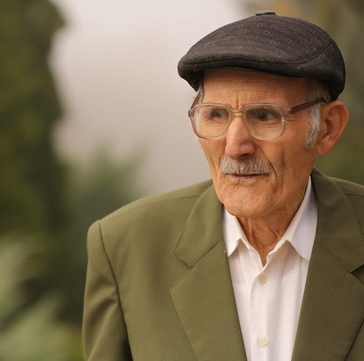
Surprisingly, it was Old Frank who still hadn't shopped or made plans. Now Frank, who was indeed the eldest, being older than Sal by a few years, had been married for something like 60 years.
"I've run out of ideas," he said simply. "So many Valentine's Days, so many gifts, I just can't think of anything new. And with tomorrow being Sunday, I don't really have much time. But I'm sure Mabelle will understand."
"You think so?" asked Wayne. "Tell me, have you ever missed a Valentine's Day?"
"Well, I did once or twice, I suppose ... "
"And how did that work out for you?" Wayne continued.
Old Frank hesitated and then stammered, "Uh, um, uh ... "
"Not so well?" Dan chimed in.
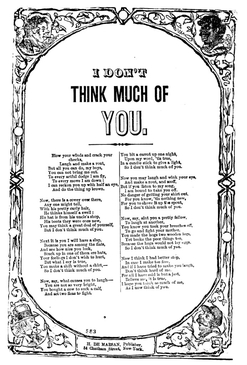
PICRYL CC0
"Okay, all right, the one time Mabelle was kind of upset. And the second time she was really angry and made me cook my own meals for a week."
"So you suppose the third time's the charm?" Delmer asked. "Or will it be strike three, you're out? Do you really want to risk it?"
"Um, I guess not ... " Old Frank said.
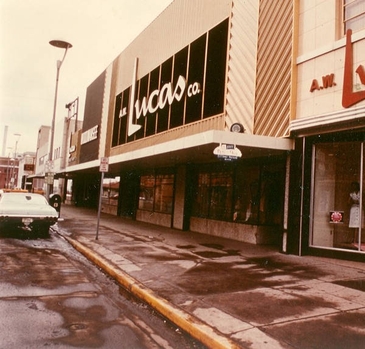
Bismarck Public Library CC0
Sal then said, "Okay then, here's what we'll do. I have a nice little problem for all of you today. Let's get into it, and when we're done, Old Frank will still have a couple of hours before A.W. Lucas closes. I have a feeling that any gift will be far better than no gift, even if it's something you've given many times before."
"She does like bath oil," Old Frank mused, "although I've given her that a good dozen or more times."
"Then get some bath oil," Sal said. "It won't take long and you can still come back in time for some of Deana's treats."
"Valentine heart cookies today," Deana called out from behind her counter. "Baked fresh today!"

Freerange Stock CC0
Sal then laid out the problem shown below on a couple of the checkerboards in the big booth occupied by the boys at the back of the Cafe. The tradition was for Sal to buy the treats if the boys could solve the problem, and for the boys to buy for Sal and his wife Sylvia if they couldn't solve it.
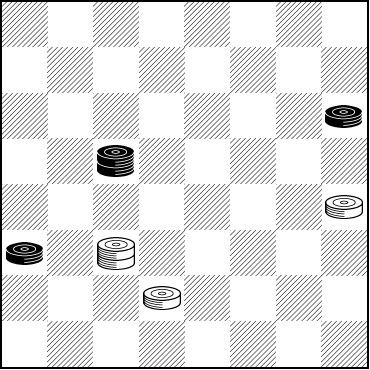
WHITE
White to Play and Win
W:W20,K22,26:B12,K14,21
"You have until 2 PM," Sal said, "as we want Old Frank to have some time to do his shopping."
The boys, including Old Frank, had for the moment set aside thoughts of Valentine's Day and were busily engaged with the checker problem.
This column will appear on Valentine's Day, 2026, and we don't know if you've "taken care of business" so to speak, should that apply to your personal situation. But no matter what, you can still solve the problem and then click on Read More to see the solution and the rest of our story.![]()
You can email the Webmaster with your comments on this article.
All My Games
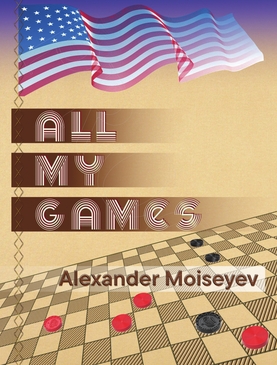
Courtesy A. Moiseyev
Alex Moiseyev's long-awaited 2nd book, All My Games, is finally available. Many years in the making (his first book was Sixth published in 2006), this new book is packed with an incredible amount of exciting material.
Mr. Moiseyev, as we all know, is a titled Grandmaster who held the title of 3-Move World Champion for many years, and is the currently reigning and nine time 11 Man Ballot World Champion. He embodies the fighting spirit of a true champion, always ready to take on any and all challengers. Yet he is also always ready to lend a helping hand to others and to vigorously promote the game of checkers. And so, it is a thrill and a privilege to review Mr. Moiseyev's latest book.
First, who is the book for? In terms of technical difficulty, it's quite variable, as Alex has indeed very admirably published all his games including those with blunders and those played at less than grandmaster level. Of course there are also all the many games with brilliancies and top level play. So there is something for everyone, from neophyte checkerist to strong grandmaster. And surely everyone will enjoy Mr. Moiseyev's unique and entertaining commentary.
The book contains fascinating biographical and anecdotal material, but its heart consists of games, problems, and annotations.
The first section features selected games and matches, such as Mr. Moiseyev's games with Louis Cowrie, a Covid-era "Zoom" tournament, and several others. These are all well annotated. At the end of the section, Mr. Moiseyev has diagrammed critical positions from many of the games and presented them in somewhat of a checker problem format, with lightly annotated solutions.
The next section comprises, indeed, "all my games" or actually, around half of them, from 1997 through 2013 (the rest of the games are promised for a future sequel). This amounts to a lot of games. They are all unannotated but you can certainly explore them on your own or with a strong computer engine.
However once more at the end of this section Mr. Moiseyev has diagrammed critical positions from many of the games, over 1,300 of them, providing an enormous wealth of additional study material for the aspiring player and challenges for the keen problemist. Solutions again are lightly annotated.
In each section, games are helpfully indexed by year, by player, and by opening. Mr. Moiseyev also provides year by year review and commentary which makes for fascinating reading and documents the progress of his career.
The book concludes with a section in full color, presenting 13 of Mr. Moiseyev's original problem compositions, with detailed solutions.
As we said, there is a lot here and this is a book that anyone with a genuine interest in checkers will wish to have.
The book is about 580 pages in length and is offered in a print on demand case laminate hardcover edition. It is nicely typeset and attractive in appearance. Your editor is pleased to have been able to assist Mr. Moiseyev in helping him through the Ingram-Spark print on demand publication process.
If there is any drawback, it is that the book, being a hardcover with full-color pages, is not inexpensive. But for a book that provides so much information, instruction, and entertainment, one can consider it an investment rather than an expense.
The book is available for order on-line from Amazon, Barnes&Noble, and other sources. It is easily located and is highly recommended. Do be patient when you order, as print on demand delivery times can be a bit extended. But it will be well worth the wait.

GM Alex Moiseyev
With Mr. Moiseyev's kind permission we're pleased to present one of his original compositions, The Sandwich.
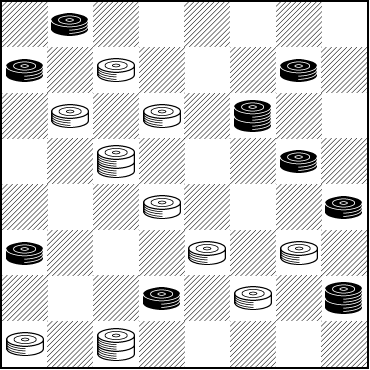
WHITE
White to Play and Win
W:W6,9,10,K14,18,23,24,27,29,K30:B1,5,8,K11,16,20,21,26,K28
Take your time to savor this one; it's quite tasty. When you're ready, slice your mouse on Read More to see the solution and full set of notes.![]()
You can email the Webmaster with your comments on this article.
AI Didn't Cut It

We thought for today's column we'd try something new; namely, publish a checker problem composed by one of the better artificial intelligence (AI) engines. So we got on to one of them--- although we won't mention the name, it's by far the most well known--- and gave it a try.
It was a real learning experience.
We started out by asking it to compose a problem for 8x8 Anglo-American checkers. It happily did so, putting pieces on both the light and dark squares, and then offering to compose more difficult problems. We went through two more iterations and got the same sort of thing.
We then explicity told it to only put pieces on the dark squares (something it had previously told us it was doing, but it wasn't). Same result. We admonished it again. It came back with a problem and a solution that made no sense. For one thing the pieces were either (a) moving in the wrong direction, or (b) it was just fine to have an uncrowned man on the last row.
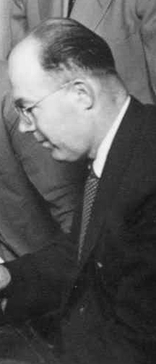
Tom Wiswell
Public Domain
After this we asked for sources of checker puzzles. It gave a few, with mixed accuracy; some of the websites cited didn't feature problems and the same was true of the referenced books. (It did give a pointer to our site, which was surprising but nice.) The engine also casually mentioned Tom Wiswell and offered to compose a Wiswell-style problem. Alas, that was a bust too, as again it confused movement directions and spewed out something that made no sense.

Rawpixel Public Domain
That was enough for us, and for today's column we turned back the clock to something well over a hundred years before AI and AI hype was ever even heard of, to select a nice problem by an honest to goodness human, who knew orders of magnitude more about composing checker problems than the best AI today seems to know.
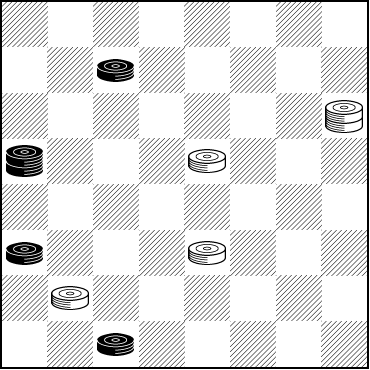
BLACK
Black to Play and Win
B:W8,10,18,K21:B3,12,K20,27
It's a nice problem, neither too hard nor too easy, which can be readily solved with your natural intelligence. Blow a raspberry at AI and solve this one, and then click on Read More to check your solution.![]()
You can email the Webmaster with your comments on this article.
Marvin J Mavin: Corruption! Part 1

It was a sunny Sunday morning in the fall and in the very swank Detroit suburb where Priscilla Snelson had her very swank condo, she and her husband, Marvin J. Mavin, were at breakfast.
As regular readers know, Priscilla was the CEO of the large multinational conglomerate Rust Belt Holdings. Marvin, her somewhat unlikely husband, was the Captain of the Detroit Doublejumpers in the National Checker League. He was nothing short of a superstar but even his superstar salary didn't come close to Priscilla's CEO compensation.
Indeed, Priscilla liked the finer things, such as her 5,000 square foot condo, her fleet of cars including a Rolls-Royce limo, a Jaguar and many others right on down to her "everyday" Lexis. Marvin, on the other hand, had simpler tastes. Prior to marriage, he drove a dilapidated old Volkswagen Beetle and lived in a small one-bedroom apartment in a quite undesirable part of Detroit. Of course, once they married, Priscilla insisted on quite a few changes to Marvin's lifestyle.

But right now, at about nine in the morning, the couple was breakfasting on poached eggs with caviar, smoked salmon, avocado toast, freshly squeezed orange juice, and 100% Kona coffee, all prepared by one of Priscilla's private chefs (she had just recently added a second chef for Sundays, which was the day off of her regular chef).
Priscilla was glancing through a business book, The Gentle Art of Hostile Takeovers, while Marvin was reading the Sunday paper, The Detroit Free Herald. With both spouses immersed in their reading, breakfast was quiet. Marvin had a match in the evening but didn't have to report to the clubhouse for warmups until two o'clock, and Priscilla was enjoying a rare half day off from her busy job.
But suddenly, Marvin spoke up. "That can't be!" he said loudly, looking up from his newspaper.
Priscilla, a bit annoyed by the loud interruption--- she was just reading a fascinating chapter that talked about what percentage of the staff to fire after a hostile takeover--- also looked up. "What can't be, dear? What is so impossible that you felt the need to remark rather loudly about it?"
"Well, just look!" he said, turning his newspaper toward Priscilla and indicating an article in the checker section.
Priscilla took a cursory glance. "So?" she said, "what is it that stands out?"

Marvin shook the newspaper and pointed. "Well, right here!" he said. "See, the Dallas Dundees are a good team and they kind of stand out on the lower boards." (In the National Checker League, matches were played five boards to a side; the strongest player played first board and so on down to fifth board.) "Well, they played the Minnesota Moves, who are stronger on the top boards and weaker on the bottom. So, the top four boards split 2-2. But on the 5th board, where Dallas played Herb Woodman, well ... I can't believe it!"
"Can you get to the point, dear?" said Priscilla.
"Yeah, yeah, well see Minnesota played Sammy Sammerson on 5th, and he won! Woodman is so much stronger than Sammerson that it's ... well ... it can't be!"
"But it was, wasn't it? Even good players lose games. Now, if you'll let me get back to my book ... "
"Okay, right, sorry, but I gotta know more about this. It just don't make no sense."
"Yes, dear, if 'it don't make no sense' you can surely look into it if you wish." At that, Priscilla turned back to her book and didn't say any more.
Breakfast was leisurely and it wasn't until nearly 11 o'clock that the couple got up from the table. Priscilla decided to take a short rest before heading off to the office while Marvin opted for an hour or so of The Checker Television Network. But he got restless and decided to go to the clubhouse about half an hour ahead of practice.
He changed into his regular clothes, said good-bye to Priscilla, and then drove the "everyday" Lexus to the clubhouse. (Priscilla wouldn't let him drive any of the other cars, or at least not very often.)
Traffic on the Interstate wasn't bad and Marvin actually arrived at the clubhouse 45 minutes before practice was scheduled. He gave a brief thought to stopping for a quick beer but quickly dropped the idea; if Coach Baba Dudut were to find out, Marvin would (quite rightly) be suspended for a while.
Marvin quickly changed into his team uniform, so as to be ready for practice, but then logged on to one of the team's NCL computer terminals. A lot of information was available to the players and coaches, including records of all the games in all the league matches.
"I just gotta see this," he said, and with a quick search pulled up the game played yesterday between Sammy Sammerson and Herb Woodman. Woodman's player rating was 2100 while Sammerson's was 1900, a full 200 points lower. "No way Sammerson coulda won," Marvin said. "No way at all!"
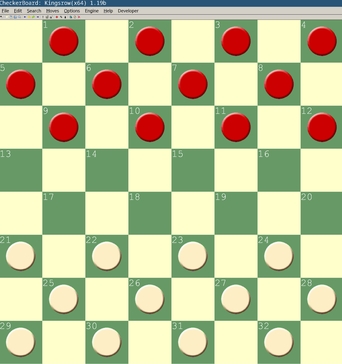
Marvin brought up the CheckahBoard computer program in another window on the computer screen and started playing through the moves in the game. Everything looked pretty normal. There were some small mistakes on each side but nothing out of line with the players' ratings and major league status.
| 1. | 10-14 | 24-19 |
| 2. | 7-10 | 22-17 |
| 3. | 9-13 | 28-24 |
| 4. | 13x22 | 25x9 |
| 5. | 5x14 | 29-25 |
| 6. | 11-15 | 25-22 |
| 7. | 6-9 | 23-18 |
| 8. | 14x23 | 27x11 |
| 9. | 8x15 | 26-23 |
| 10. | 9-14 | 32-28 |
| 11. | 4-8 | 24-20 |
| 12. | 15x24 | 28x19 |
| 13. | 8-11 | 22-18 |
| 14. | 1-5 | 18x9 |
| 15. | 5x14 | 30-26 |
| 16. | 2-7 | 19-16 |
| 17. | 12x19 | 23x16 |
| 18. | 10-15 | 26-22? |
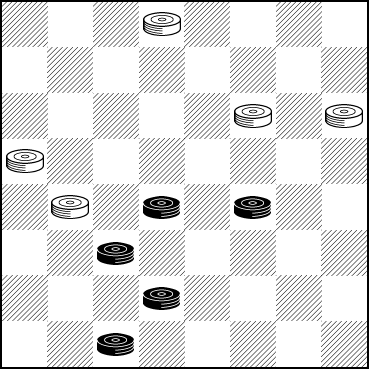
BLACK
Black to Play and Win
B:W16,20,21,22,31:B3,7,11,14,15
Marvin stopped at his point. "No," Marvin said, almost in a whisper, "that just couldn't have been." Then he said it louder. "No way Woodman played 26-22!" But in fact he had.
"What are you talking about?" an angry voice said behind him.
What move should Herb Woodman have played? How is Black now going to win? And what do you think is going on here? Correcting the error should be easy although playing out the win is quite a bit more work. Give it some thought and effort and then click on Read More to find some of the answers.![]()
You can email the Webmaster with your comments on this article.
The Encyclop(a)edia
So what's the correct spelling of "encylopedia"? (The younger amongst you might even ask "What's an encylopedia?" as they've just about gone the way of the dinosaurs.) The modern spelling is as just given--- encylopedia. But the older spelling is more like "encyclopaedia" although not exactly --- the 'a' and 'e' in the 'ae' combination are really a single character once called "ash" which represents the Latin 'ae' dipthong. A bit on the academic side? Perhaps, but interesting nonetheless.
The following checkerboard situation, also on the academic side, is derived from the famous opening guide called Kear's Encylopaedia, and we'll stick with the classier old style spelling as Kear himself did. It's on p. 370 and arises from a variation in a Souter opening. Black has just erred and now White has what is truly a textbook win. The problem is slanted more towards the advanced beginner or lower intermediate player, but our expert readers should see how quickly they can solve it.
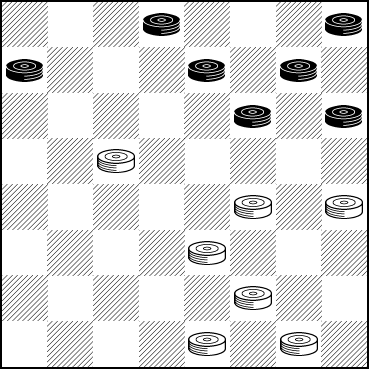
WHITE
White to Play and Win
W:W14,19,20,23,27,31,32:B2,4,5,7,8,11,12
It doesn't require encyclop(a)edic knowlege to solve this one, but it does require a grasp of some endgame basics. Give it a try and then click on Read More for the solution.![]()
You can email the Webmaster with your comments on this article.
The Beacon Cafe: A Winter Visitor
Bismarck, North Dakota, is a cold weather city to say the least, and January is the coldest of all the months of the year. So the members of the Coffee and Cake Checker Club, which met on Saturday afternoons from just after Labor Day until just before Memorial Day, were very surprised when a visitor walked into their venue, the Beacon Cafe, on a very cold Saturday in January 1955. (Regular readers know that it's always 1955 at the Beacon Cafe.)
It was a few minutes after 1 PM and the "boys" who made up the club (all but one of whom were at least 50 years old) had gathered as usual in the big booths in the back of the Cafe. On seeing the new entrant, Sal Westerman, the Club's unofficial leader, stood up.
"Newboy!" he exclaimed. "Is it really you?"
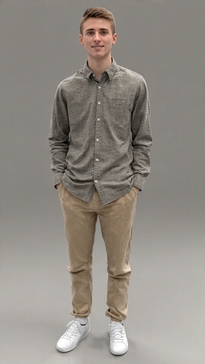
Bob "Newboy" Bertollin
The young visitor smiled, "Indeed it is, Sal!"
"Newboy" was actually a skilled checkerist named Bob Bertollin, whom Sal had played against during a major summer checker tournament in Las Vegas. Sal and Bob had tied for third and fourth in that high level event.
"I had no idea you were coming to Bismarck," Sal said. "What brings you here?"
"Just passing through on my way to Minneapolis," he said, "and as I knew about your club, I thought I'd stay overnight before continuing on tomorrow morning."
Sal smiled. "You're more than welcome to be here," he said. "Let me introduce you around."
Today Delmer, Wayne, Larry, Dan, Mike, Ron, Young Blaine, and Louie the Flash were on hand and they all shook hands and greeted "Newboy." Then Sal continued, "Tell you what, Newboy. You're a young and upcoming checkerist, and so is Young Blaine here. How about the two of you play a game while the rest of us kibitz?"

Young Blaine
Young Blaine, upon hearing this, had kind of a wary look. "I don't know, Sal, you've said what a good player Newboy is; I don't think I'd have a chance."
Sal chuckled. "Tell you what, Young Blaine, how about this. I'll back you up. If you can win or even draw against Newboy here, I'll buy all the treats today."
Newboy quickly spoke up. "No Sal, I'll buy no matter what as long as Young Blaine here plays a game with me. Seems only right to thank you for your hospitality."
"Very nice of you, Newboy," Sal said, "so how about it?"
The rest of the boys urged Young Blaine on and he soon agreed. "Why not?" he finally said, and everyone cheered.
Deana, the proprietess of the Cafe and an award winning baker, not to mention a great marketer, casually mentioned that today she had freshly made chocolate macadamia bars. "A friend of mine brought me back some mac nuts from Hawai`i," she noted, "and the treats are extra-special today."
Deana then poured more coffee for everyone although Newboy actually requested hot tea. Then the game began with all of the boys watching closely.
Black: Young Blaine
White: Bob "Newboy" Bertollin
| 1. | 12-16 | 24-20 |
| 2. | 8-12 | 28-24 |
| 3. | 3-8 | 23-18 |
| 4. | 16-19 | 24x15 |
| 5. | 10x19 | 21-17 |
| 6. | 11-15 | ... |
Sal and a couple of the boys frowned just a bit but tried not to let Young Blaine see their reaction to this move.
| 6. | ... | 18x11 |
| 7. | 8x15 | ... |
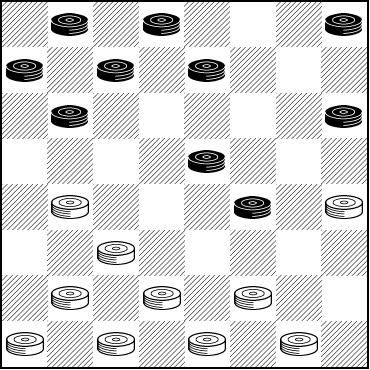
WHITE
White to Play and Win
W:W17,20,22,25,26,27,29,30,31,32:B1,2,4,5,6,7,9,12,15,19
Newboy knew he now had a win.
What should Young Blaine have played instead of 11-15? And how is Newboy going to win it? A word of warning; the solution is long and requires precise play.
Although as always you'll need to supply your own treats, give this a try and then click on Read More to see the solution and the brief conclusion of our little story.![]()
You can email the Webmaster with your comments on this article.
Back to Work
It happens every January. The holiday season has come to an abrupt end, and it's back to work as usual for another year. Depressing? Perhaps. But don't let it get you down. We have a nice checker problem to help cheer you up and distract you from reality. It's from our nearly exhausted stock of problems by the late grandmaster composer Edgar Atkinson, who composed it at age 14 and had it published in Elam's Checker Board in December 1952, until the title Youthful Efforts.
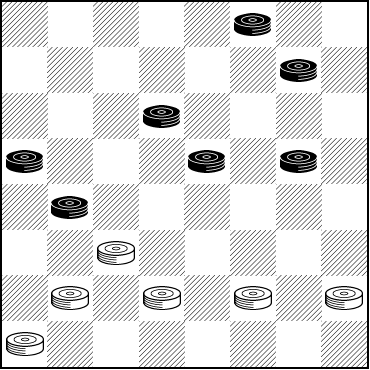
WHITE
White to Play and Draw
W:W22,25,26,27,28,29:B3,8,10,13,15,16,17
White is a man down; can you find the draw? It's not really that difficult ... or is it? Give it a try and then click on Read More to see the solution.![]()
You can email the Webmaster with your comments on this article.
The Little Checker Girl
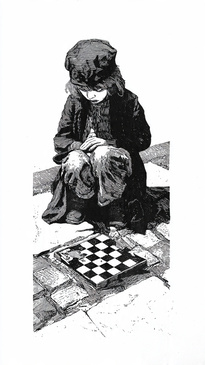
No one knew much about her, not where she lived, if anywhere; not who her parents were, if she even had any; not even what her real name might be, if she herself even knew what it was. They all just called her "The Little Checker Girl" because she would be seen on various streets around the downtown area of this big northern city, sitting with her back up against a building, her checkerboard on the sidewalk in front of her, asking and sometimes even begging passers-by to play a game with her.
"Play checkers for a dollar?" she would call out. "Easy to play, easy to win!" Once in a while someone would take pity, or take interest, or just take a moment, and a dollar bill would go into the grimy pocket of the girl's tattered overcoat.
They would see her even on cold days and often well after darkness, inviting play under a street lamp. "Only a dollar! Play a game before you go home!" But in the chill darkness of the night, there was no crowd and the few stragglers just wanted to go to their trains or cars or buses, to get home and out of the cold, to have a hot meal, and to climb into a warm bed. But there was none of that for the Little Checker Girl.
If someone asked her name she would perhaps say Suzie, or maybe Carol or Betty or something else. A few people, the ones who passed by more often, would ask, "What's your name today, Little Checker Girl?"
Little Checker Girl was thin and wan. She looked a bit better in the summer but the winters took their toll. She had been playing on the streets for about three years, and those who cared to think about it believed her to be around ten years old. But not likely, they said, to be around much longer.
This winter had unfortunately been especially severe, and there were many days and nights of cold and snowy weather. It was late in December and tonight was in fact Christmas Eve. Most offices had let out early and by dark the streets were nearly empty. But the Little Checker Girl was still huddled up against a building, hoping to play a game for a dollar; maybe someone would even give her an extra dollar because it was almost Christmas.
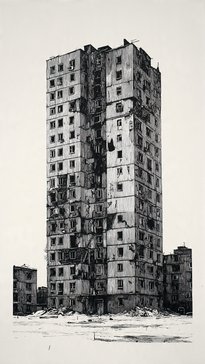
She needed the money badly; what no one knew was that she lived in a room in a crumbling apartment building that had long been abandoned. She had found a spot on a high enough floor where the drunks and the vagrants didn't go because it was too much of a climb on steep stairs. She got water from a faucet in a nearby courtyard. She had scavenged an old bucket and a little tiny oil stove on which she warmed whatever food she could obtain, and then use it--- sparingly, as oil was costly--- to make a little heat on the coldest nights.
Unfortunately on this night, on Christmas Eve, she had neither money nor food and the oil canister was empty. Filling it up cost five dollars and food cost a couple of dollars more. So she stayed out in the bleak night in the hopes of getting just enough money to buy a little fuel and something to eat.
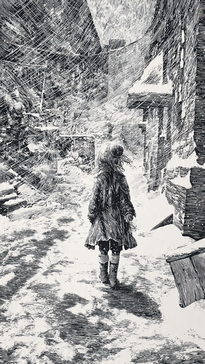
But then it started to snow and the street was now completely empty. In sadness the Little Checker Girl packed up her board and pieces and started on her way to her bleak and cheerless home. It would be a cold and hungry night, but at least she could get out of the snow and the biting wind that was now blowing stinging snowflakes into her face.
However, the snow soon became so heavy that she couldn't see a foot in front of her. She must have lost her way, for much time had passed and still she hadn't reached the old building in which she took refuge.
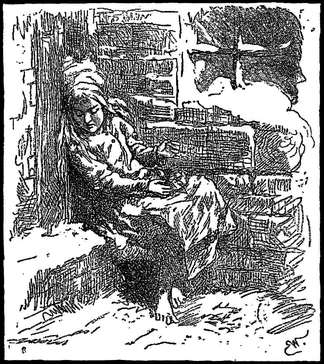
Public Domain
Finally she gave up and went into an alleyway to get a respite from the wind. She huddled up in a corner, pressing her back into the walls of a grimy brick building, hoping that perhaps a little heat would leak through from inside. It was so very cold.
The Little Checker Girl wrapped her arms around herself and before long her eyes closed. Her mind as well as her body was numb and she wanted to sleep, not realizing that she might never again awaken.
"Little Checker Girl, wake up! I want to play a game of checkers with you!"
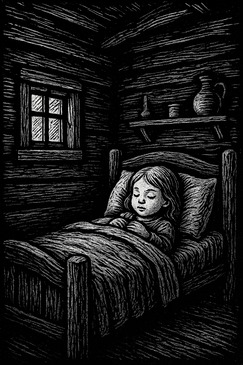
Slowly Little Checker Girl's eyes opened. Vaguely she remembered falling asleep--- or was it something else?--- in an alley in the midst of a snowstorm. But now she saw neither snow nor grimy walls nor dingy buildings. She was in a soft bed, covered with warm quilts, in a small rustic cabin where a fire was blazing brightly on the hearth.
The voice she heard belonged to an elderly, grey-haired woman with kind eyes and a soft expression. "Come over to the table," she said, "and in a moment we can play a game or two of checkers."
Little Checker Girl folded back the bedclothes and saw that she was clothed in a fine wool nightdress, with woolen stockings on her feet and a woolen cap on her head. There was no sign of her tattered overcoat or her other well-worn clothing. In the center of the cabin there was a rough wooden table, and on it was a fragrant loaf of bread, plates of butter and jam, and a steaming pot of tea ... and her checkerboard and pieces.
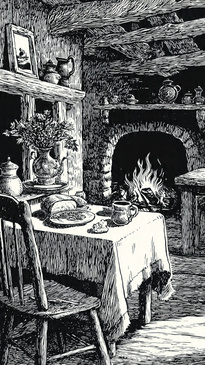
Little Checker Girl realized how hungry she was and, murmuring thanks, went to the table and spread slices of bread thick with jam and butter. She ate gratefully and drank some of the delicious hot tea. And while she had her meal, the best meal she could remember in ages and ages, the kindly old woman spoke.
"You know, your name isn't really Little Checker Girl," she said, "or any of the other names you've been using. It's actually Maureen and I know all about you. I know how your parents and brothers and sisters all died in a fire one night, and how you escaped with only your checkerboard and the clothes on your back. You were afraid and ran away and no one ever found you, for they all thought you died in the fire too."
Maureen looked up, surprised. "But I don't remember ... " she started to say, but the kindly woman interrupted.
"No you don't," she said, "it was so horrible your mind blocked out your memories. And even though I tell you of it now, it will all still stay locked away. That's for the best, I think, and in any event you are safe now in a warm place with food to eat and someone to care for you. If you wish, you may stay here with me for as long as you like. There are other children in the neighborhood with whom you can play, there are schools where you can go to learn, and you need not worry about anything ever again."
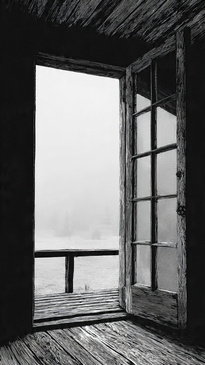
Maureen stood and walked around the cabin. Outside she could see a mist imbued with warm, ethereal light. "Oh! It is such a generous offer! I will of course stay here and live with you," she said. 'But what shall I call you?"
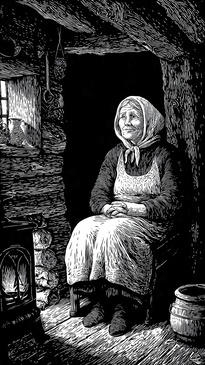
"My name is Seraphina, and I am your Guardian Angel."
Maureen smiled and went to Seraphina and gave her an affectionate hug. "Thank you again," Maureen said, "and we can play that game of checkers now if you wish."
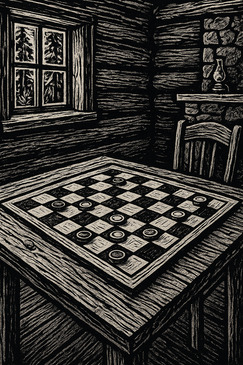
Our story is of course inspired by the Hans Christian Andersen classic The Little Match Girl. We hope you found it appropriate to the season.
Maureen and Seraphina played checkers often and their games were always friendly, spirited, and a great source of enjoyment for them both. Here's one game that led to an interesting position.
| 1. | 11-15 | 23-19 |
| 2. | 7-11 | 22-17 |
| 3. | 11-16 | 26-23 |
| 4. | 16-20 | 30-26 |
| 5. | 2-7 | 25-22 |
| 6. | 8-11 | 19-16 |
22-18 was best here. Black now will get a solid advantage.
| 7. | 12-19 | 23-16 |
| 8. | 4-8 | 16-12 |
| 9. | 11-16 | 17-13 |
Seraphina
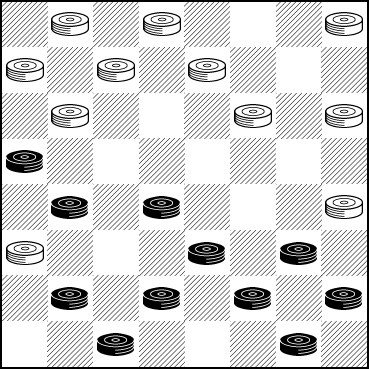
BLACK
Maureen
Black to Play and Win
B:W12,13,21,22,24,26,27,28,29,31,32:B1,3,5,6,7,8,9,10,15,16,20
How would you win this one? What move do you think Maureen played? Can you match wits with her? See what you can do and then click on Read More to see the solution.![]()
You can email the Webmaster with your comments on this article.
Christmas Dinner with Marvin and Priscilla

Marvin J. Mavin
"Please don't tell me you're thinking of another cruise," Marvin said.
"Oh, no, dear," Priscilla replied, "not in the least. After all, how could we top that cruise to Panama we took over Thanksgiving? That was marvelous, wasn't it?"

Priscilla Snelson
Priscilla, as our regular readers know, is Priscilla Snelson, the wife of Marvin J. Mavin, and the CEO of the giant international conglomerate Rust Belt Holdings. Marvin is the superstar Captain of the Detroit Doublejumpers, a team in the National Checker League, and one which has been a many time winner of the World Series of Checkers.
In our previous story, Marvin and Priscilla cruised on Luxury Lines from Miami to Panama, a voyage in which Marvin was coerced into giving checker lessons and directing a checker tournament. The cruise experience was much more to Priscilla's liking than to Marvin's.
"No, dear husband, we have a special invitation for Christmas dinner, and it's interesting that you should mention our cruise, as the invitation stemmed directly from someone we both met on-board."
Marvin was instantly wary. "Whaddya mean, Prissy?"
"Don't call me Prissy! How many times must I tell you that! But ... anyhow ... you remember that nice gentleman who sat next to you at Thanksgiving dinner at the Captain's table?"
Marvin in fact did remember all too well.
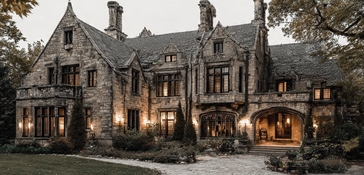
"Well," Priscilla continued, "wouldn't you know it, but he has a home nearby! Normally, of course, he works on Wall Street in New York, but he has a getaway mansion in Grosse Pointe and goes there for the holidays. Isn't that grand! You surely remember Nicolas N. Nickelson, the hedge fund manager?"
"Um ... uh ... like, are you sayin' that this stuck-up rich dude invited us and stuff?"
"Yes, he did! He and I got to be friends over drinks while you were doing your checker duties, and we'll be going to his vacation mansion for Christmas dinner!"
"I think even a cruise would be better than that," Marvin muttered under his breath. Then, aloud, he said, "Please tell me he didn't invite us for New Year's Eve, too?"
"Oh no, dear, that would have been nice, but he has to be back in New York to entertain clients from Qatar and Monte Carlo. In any case, we'll be joining my business friends for New Year's Eve at a private party one of them is putting on in Aspen."
Marvin was speechless, and perhaps that was just as well.

It was Christmas Day. Priscilla and Marvin had slept in and, just after breakfasting on a Christmas special of caviar served on poached eggs, they had exchanged gifts. Priscilla gave Marvin a diamond encrusted Swiss watch, even though she knew Marvin rarely wore a watch. "It's the thought that counts," she told him. In turn, Marvin gave Priscilla the keys to a brand new Mercedes, as her current Mercedes was already a good 18 months old, and by Priscilla's standards was due for replacement.
A cozy afternoon passed but at around 4 o'clock Priscilla reminded Marvin that it was time to change into dinner clothes. "Cocktails at 6, dinner at 8," she announced, "and I doubt that Mr. Nickelson would care to be kept waiting."
"Dinner clothes?" Marvin said. "I ain't got no ... "
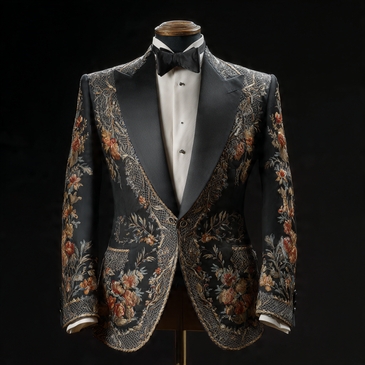
"No, no," Priscilla interrupted. "Not a tux, just a dinner jacket, a white shirt, and a black bow tie. You've got several dinner jackets from other occasions. Just look in the back of your closet; I had one freshly dry-cleaned and pressed for you. Wasn't that considerate of me?"
Priscilla's limo proceeded at a stately pace down the quarter-mile long driveway of Nicholas Nickelson's vacation mansion, smartly turned into the loop at the top of the drive, and came to a gentle halt. Immediately liveried footmen opened the doors of the limo and showed Priscilla and Marvin to the enormous entryway.

Nicolas Nickelson
Mr. Nickelson himself greeted the arriving couple just inside the door. "Dear sweet Priscilla," he exclaimed with a smile, kissing her once on each cheek. Then he turned to Marvin and, with seeming reluctance, offered a hand. "And you must be, of course, yes, that checker playing husband." His handshake was perfunctory at best. "I remember you from the cruise. You were a hired hand, weren't you, what with ... what did you do ... give lessons or something? Some sort of minimum wage job? Or did you just work for food?" Nickelson laughed. "Imagine that!" he said. "I can see the sign! 'Will teach checkers for food!' How marvelous a sight that would be!"
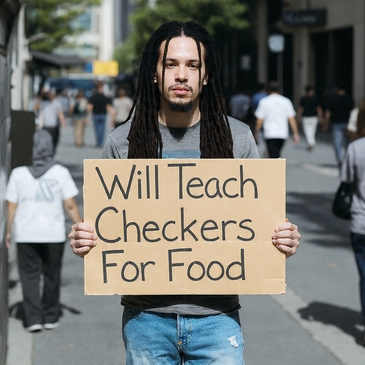
Marvin glanced over at Priscilla, who merely warned Marvin with a look not to say anything in return. But Nickelson wasn't quite done. "Maybe I can introduce you to some of my hedge fund friends! Perhaps they'd give you a hot dog in return for a lesson! But I'm in the business of making money for myself and my clients. Scads of money. So we have to play chess, not checkers."
"That old line again?" Marvin said, unable to hold back. "I heard that at from all those CEOs this past summer and I had to straighten them out!" (Please see our previous Checker Maven story.)
"Oh," Nickelson said, "did you teach some CEOs? Did they feed you well? Hamburgers, even? Or are you happy with instant ramen!" He laughed again.
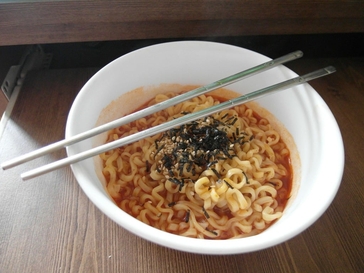
Public Domain
"Dude, do you play checkers?" Marvin said it almost in a growl. Priscilla grabbed his upper arm and squeezed hard in further warning. But it was too late.
""Course I do," said Nickelson with a laugh. "Who doesn't? It's a kid's game, right, we all learned it as kids, except apparently----" Nickelson paused to look Marvin in the eyes--- "some of the kids never grew up! Ha ha ha!" He paused a moment. "But anyhow, did I invite you to this party? Why are you here?"
Priscilla finally spoke up. "Marvin is my husband, don't you remember? You invited us as I recall."
Nickelson reflected a moment. "Yes, 'spose so," he said, "but I didn't think you'd actually bring him. I thought we were going to, you know, have a nice little night of private time upstairs, just you and I. What do you think, Marvin, wouldn't that be nice ... for Priscilla and I to have a little alone time, upstairs?"

Marvin made a fist, pulled back his arm, and was about to connect with Nickelson's nose when Priscilla yanked him back. "No violence, honey," she said. "I think I mis-estimated Mr. Nickelson quite badly. You were quite insulting, sir, and I tried to get Marvin to remain polite with you, but you've pushed things too far and your suggestive talk insulted me as well. So here's what I propose. Instead of Marvin slugging you in the nose and knocking you on your fat tail, but probably getting arrested for doing so, how about the two of you play a nice little game of checkers? You say you're this superior chess person, so surely you'd win a simple game against someone whom you say isn't even a real grownup?"
Nickelson glared. "Sure," he said, "I'll take on your child husband, but let's make it worthwhile. What do you say we stake $100,000 on the game?"
"Oh, no," Priscilla said, "let's make it even more interesting. $500,000. And you get draw odds. You win the bet if Marvin loses or draws."
"Honey, gee," Marvin said, "draw odds? That's takin' a risk ... "
"You'll win," Priscilla said, "or I'll be the one breaking your nose."
"Let's do it," Nickelson said, and then announced the terms of the match to the partygoers. One of the event staff set up a checkerboard and the crowd gathered around to watch.
The game began. Nickelson played a reasonably decent game and the position came down to the one shown below with Marvin to move.
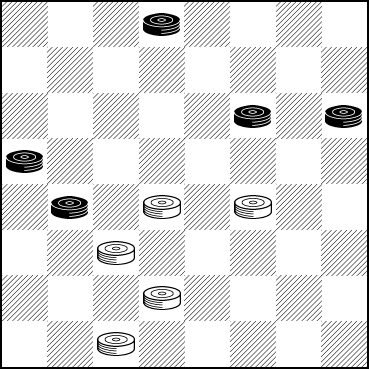
WHITE
White to Play, What Result?
W:W18,19,22,26,30:B2,11,12,13,17
"A cool half million," Nickelson said, "for you can't possibly win this one. Half a million, why, that's a week's worth of my earnings! It will be nice to have!"
A lot is on the line; half a million dollars, and definitely ego and prestige. Marvin surely must be feeling the pressure. There's no pressure on you, though; solve the problem at leisure without (we hope) any risk of losing a lot of money and status, not to mention getting punched in the nose. When you're ready, click on Read More to see the solution and the conclusion of our story.![]()
You can email the Webmaster with your comments on this article.
Holidays Ahead: The Beacon Cafe
"We know you had a great time over Thanksgiving at your sister in law's place in Dickinson," Delmer said. "So tell us, are you going in for a repeat performance this Christmas? Maybe you can stay until New Year's Day!"
Everyone laughed, except the target of the remark, the elderly gentleman Sal Westerman.
The location was the Beacon Cafe in Bismarck, North Dakota. It was December 1955 and the holidays were just a week away. The occasion was the weekly meeting of the Coffee and Cake Checker Club, which met every Saturday afternoon from just after Labor Day to just before Memorial Day, with time out for the Thanksgiving and Christmas / New Year's holidays.
Sal was the club's informal leader, and the ones teasing him were the "boys" of whom all but one were at least 50 years old.
In our previous Beacon Cafe story, we recounted how Sal's wife, Sylvia, got him to go out to Dickinson for Thanksgiving at her sister in law Phoebe's home. Phoebe and Sal, as also recounted in previous stories, didn't exactly have a cordial relationship, what with Phoebe's constant criticism of Sal's checker hobby, among many other perceived shortcomings.
"No," Sal finally replied, slowly and deliberately, "we won't be going to Dickinson. Our daughter Joyce is able to get some time off from the law practice and will come over from Washington for a visit. We'll be staying home and spending our time with her."
Everyone commented as to how nice that would be. The boys individually commented on their own plans. Most of them would be home with family or going out to the family farm for several days. Louie the Flash, predictably, had a girlfriend lined up and would have Christmas at her place. He wasn't so sure about New Year's Eve, though, as he said "the relationship really isn't going all that well." That got another laugh from everyone, as Louie went through girlfriends as fast as a Cadillac went through gas.
Deana, the proprietess of the Cafe, would of course visit with family in Gackle and close the Cafe for about ten days. But when it came to Young Blaine, who had over the summer gotten married to his now-wife Moira, the teasing shifted away from Sal and onto Young Blaine.

Moira
"So then, Young Blaine," Wayne began, "are you taking Moira on a spectacular holiday vacation?"
Young Blaine turned a bit red. "Actually," he said, "that's something of a problem."
"What do you mean?" Dan asked. "You just buy a ticket to Paris or Rome and off you go! Problem solved."

Young Blaine
"Uh, remember, I'm just an Assistant Engineer," Young Blaine replied, "and I can't afford that kind of thing."
"With you and Moira both working?" Dan added.
"Besides," Young Blaine continued, "neither of us have that much vacation time, especially after our honeymoon. But ... well ... that's kind of what Moira and I have been ... disagreeing about."
"Fighting, you mean?" Wayne said.
"Not exactly fighting ... well, okay, a little. Moira didn't think our honeymoon was long enough and she wants what she calls a 'continuation" and she wants it in Hawai`i."
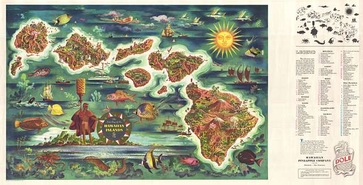
Public Domain
"Oh, boy," Larry said, "get out your checkbook for that one."
"I know," Young Blaine went on, "and she says we have enough vacation to go for one week. But that hardly seems worth it, to spend so much money for just a week. I want her to wait for summer when we can go for two weeks, as we'll have more money and vacation time saved up. But she won't hear of it. 'Now or never' she says, and the 'never' part sounds kind of ... I don't know ... threatening?"
At this moment Sal chuckled. "Young Blaine," he said, "Moira is a new bride, and she wants to keep that special 'just married' feeling. You can't blame her for that. Certainly she's not threatenng you; she just wants to get your attention. Now, take it from me. You're only young once, and not even for all that long, and hopefully you're only newly married once. So go along with things. Make her extra happy. Take out a small loan if you must. Show her that she's at least as special after marriage as she was before. You'll never regret it."
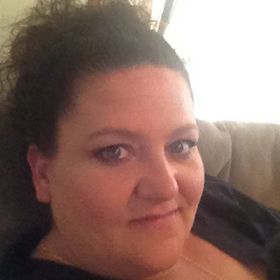
Deana
There were nods around the table, and even Deana (who had never herself been married) chimed in.
"Uh ... okay ... " Blaine stammered, "but ... uh ... Sal ... shouldn't we be doing a checker problem or something?"
Sal chuckled once more. "Yes, Young Blaine, we should, and you've had enough teasing and free advice for one afternoon. Here you go, boys."
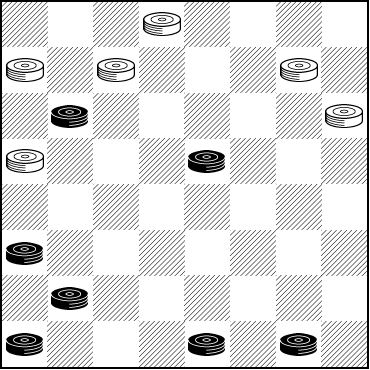
BLACK
Black to Play and Win
B:W20,21,25,27,28,31:B1,2,4,8,12,18,24
Sal laid out the following position on a couple of the checkerboards in the big booth in the back of the Cafe where the boys always sat. And of course Deana announced today's treat: apple strudel. The way it always worked was that the boy would attempt Sal's problem and if they solved it Sal bought the treats; if they couldn't, they bought treats for Sal and Sylvia.
Sal gave the boys an hour and soon they were in deep concentration.
A second honeymoon in Hawai`i over the holidays; that's quite a lot for Young Blaine to think about. While we don't know what you, our reader, will be doing over the holidays, we suspect it may not be a second honeymoon--- but who knows? Anything can and does happen in the world of checkers. Meanwhile, though, see how you do on today's problem, and then click on Read More for the solution and the brief, and possibly surprising, conclusion to our story.![]()
You can email the Webmaster with your comments on this article.
The Checker Maven is produced at editorial offices in Honolulu, Hawai`i, as a completely non-commercial public service from which no income is obtained or sought. Original material is Copyright © 2004-2026 Avi Gobbler Publishing. Other material is public domain, AI generated, as attributed, or licensed under CC1, CC2, CC3 or CC4 and the various CC options. Information presented on this site is offered as-is, at no cost, and bears no express or implied warranty as to accuracy or usability. You agree that you use such information entirely at your own risk. No liabilities of any kind under any legal theory whatsoever are accepted. The Checker Maven is dedicated to the memory of Mr. Bob Newell, Sr.


